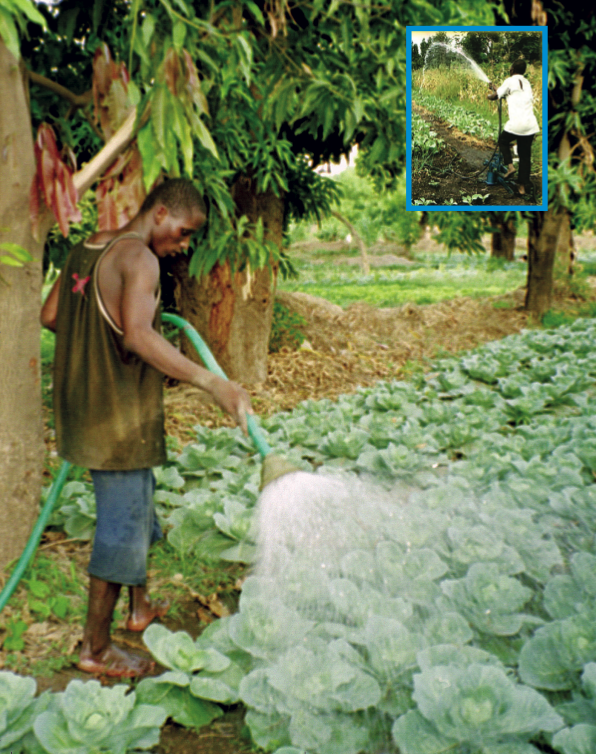Irrigation - Spray head
Spray-head irrigation requires pressure from pedal or motor pumps. In West Africa, the spray-head is mounted on a lay-flat hose connected to a small petrol pump. Spray irrigation is an intermediate option between a watering can and more sophisticated sprinkler or drip irrigation. It has high water use efficiency and saves energy and labour.
Treadle pumps combined with spray-heads are promoted by Approtec in East Africa and Enterprise Works in West Africa.
Due to its simplicity, spray irrigation technology has spread spontaneously from farmer to farmer in West-African countries such as Mali, Niger and Togo. A recent survey in Bamako, Mali, among 80 market gardeners showed that more than 60% used this method.
Suitable conditions
| Advantages | Disadvantages |
|---|---|
| - High water use efficiency. - Saves energy and labour. |
- labour requirement could be high |
Construction, operations and maintenance
Options for optimization:
- reduce the price of equipment, including that of accessories, such as layflat hose;
- improve spraying head efficiency;
- improve pump efficiency;
- improve engine efficiency; and
- replace the petrol pump with a treadle pump.
Costs
US$ 2 - 5 for a spray-head. US$ 300 - 600 for a unit with petrol pumps.
Field experiences
Location: West Africa.

